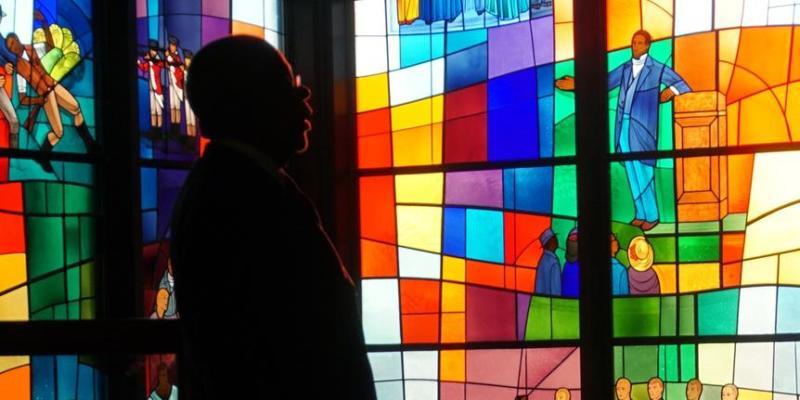The Black American experience is varied and expansive, but certain heartbeats and pulses ring familiar to vast portions of the community. One of those collective experiences is that of the Black church. Whether you’re an active member in a church community, agnostic, or even if you are a member of a different faith, the hymns, stories, histories, and even some sermons might ring familiar. The Black church has been at the center of everything, existing inside of the Black community as we’re transformed and evolved across the generations.
With The Black Church, as he’s done previously with the Black American experience overall and for the Reconstruction era, Dr. Henry Louis Gates, Jr.’s latest PBS series takes an in-depth look at Black American Christianity and the evolution of the Black Church. For four hours, the series examines the church’s origins that began on the waters during the transatlantic slave trade when various African faith practices converged with Christianity. Moving through the years, the series explains the Black church’s role in Reconstruction, the Great Migration, the Civil Rights Movement, and into the modern era.
Gorgeously illustrated with detailed archival footage, materials, and photographs, Dr. Gates also gets vast and varied perspectives with interviews from figures like Dr. Michael Eric Dyson, Reverend Jeremiah Wright, and Yolanda Adams, among others.
As much as the church has been a refuge for the Black community, it has also been seen as a threat to outsiders. A pillar of strength and freedom for Black people meant Black churches have become targets. Some of the more harrowing moments in the series chronicle the horrors that were inflicted upon the church and its members amid the white backlash of Reconstruction and during the Civil Rights. Pulling parallels from the massacre at Mother Emmanuel AME in 2015, Gates lays bare the terrorism wreaked upon the Black church for centuries by white supremacists.
Though The Black Church is fast-moving, Gates’ research is expansive, and he leaves nearly no detail on the subject unturned. Gates unpacks the birth of various denominations from the African Methodist Episcopal Church to the Protestant church. In this way, the series will feel very much familiar to viewers who have watched the Harvard University professor’s work closely. However, with The Black Church, Gates sets out to examine the church’s current status. He begins to investigate why following the Civil Rights movement and certainly into today, the younger generations have walked away from church communities, many of them never looking back.
Sexism and the erasure of Black women in various church roles have been where the institution has stumbled from the beginning, and The Black Church does address this. However, the series stops short of truly addressing rampant homophobia, condemnatory actions, and the predatory nature of many church leaders who sexually abuse their underage parishioners or have inappropriate relationships while presenting a Christian image to their community.
One of the most striking moments in the film is when Rev. Dr. Yvette Flunder reflects on her late friend, the disco-singer, Sylvester, who confided in her that the same people turned them out also turned them out of the church. This type of dismissal of LGBTQ parishioners led many Black churches to turn their backs on the HIV/AIDS crisis, which devastated the Black community as a whole.
As detailed and thorough as The Black Church is, the series doesn’t quite feel complete after a four-hour experience. Despite the overarching history lesson that Gates and his team have worked diligently to unpack, it never drills down into the church’s current issues. Black church membership continues to wane outside of megachurches. However, The Black Church stops short at really unraveling the institution’s core issues, which in one breath has uplifted so many and, in another, wounded countless others.
Check out an exclusive clip from The Black Church below:
The Black Church Premieres February 16 and 17, 2021 at 9:00 p.m. ET on PBS.
Aramide A. Tinubu is a film critic, consultant and entertainment editor. As a journalist, her work has been published in EBONY, JET, ESSENCE, Bustle, The Daily Mail, IndieWire and Blavity. She wrote her master’s thesis on Black Girlhood and Parental Loss in Contemporary Black American Cinema. She’s a cinephile, bookworm, blogger and NYU + Columbia University alum. You can find her reviews on Rotten Tomatoes or A Word With Aramide or tweet her @wordwitharamide

